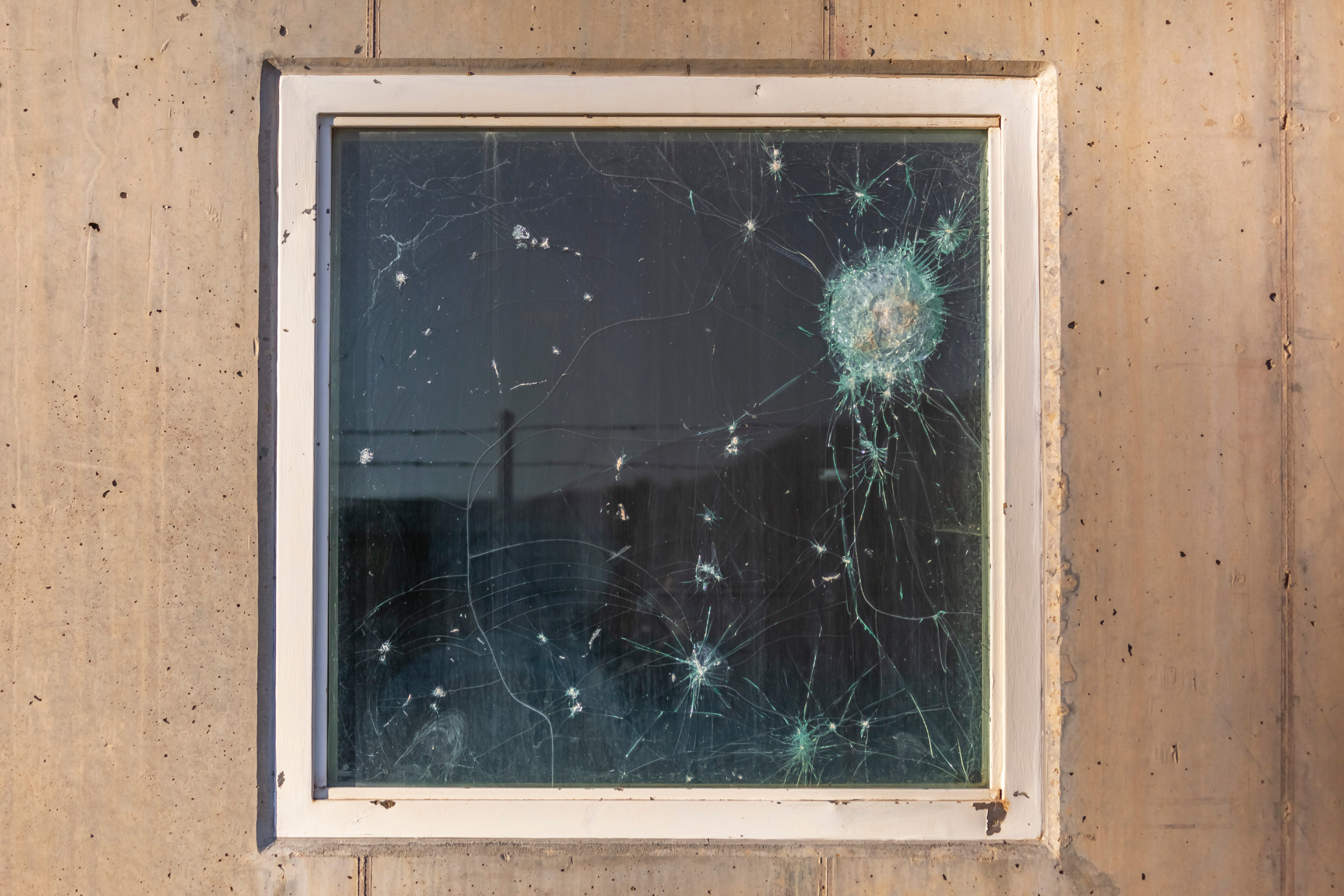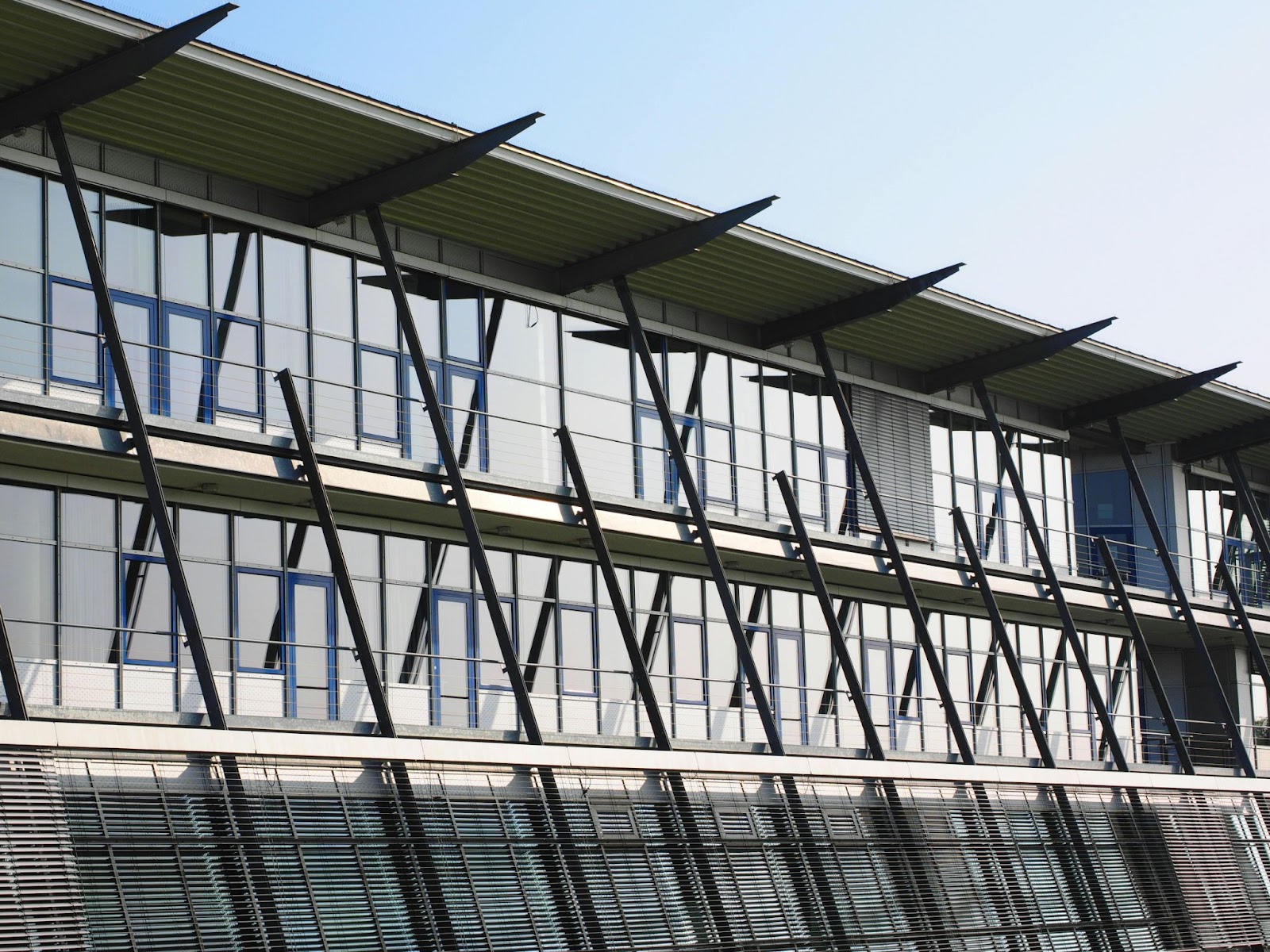How Thick Is Bulletproof Glass Do You Need?

When it comes to keeping yourself and your family safe, there is no question that bulletproof glass should be top of mind. Bulletproof glass is designed to protect against high-velocity projectiles such as bullets, making it an invaluable safety feature in homes and businesses. But when choosing protection for your family or business, one key factor that needs to be taken into account is how thick the bulletproof glass should be. Let’s explore the various factors you need to consider when determining the right thickness of bulletproof glass for you.
How Thick Does Bulletproof Glass Need To Be?
The thickness of bulletproof glass depends on the level of protection you need. According to IBC 2406 requirements for safety glazing, companies must adhere to standards for ballistic resistance when designing and manufacturing bullet-resistant systems. These ratings are based on a number of factors, including the type of ammunition used, the velocity at which it is fired, and the distance from the shooter to the glass.
For example, if you are using a 9mm handgun, you may need bulletproof glass that is rated for Level 1 protection. This would require your bulletproof glass to be at least fifteen millimeters thick and able to withstand up to three shots without shattering or cracking. On the other hand, if you are looking for higher levels of protection, you may want to consider a Level 3 rating. This level is designed to resist multiple shots from high-powered handguns and rifles, as well as certain types of explosive projectiles.
Factors Affecting Bulletproof Glass Thickness
The level of protection you need will affect how thick your bulletproof glass needs to be. The thicker the glass, the more resistant it is to bullets and projectiles. However, other factors must also be taken into consideration when determining the thickness of bulletproof glass. These include:
Type Of Threat
Different threats require different levels of protection. For example, a Level 1 rating requires bulletproof glass to be at least 0.68 inches thick, while a Level 3 rating requires glass to be at least 1.125 inches thick.
Desired Level Of Protection
In addition to the type of threat, the desired level of protection must also be taken into account. Generally speaking, higher levels of protection require thicker glass. However, this isn’t always the case; in some instances, a lower level of protection may require thicker glass than a higher one, depending on the specific circumstances.
Application
Different applications may require different thicknesses of bulletproof glass. For example, if the application is a security booth, the desired level of protection may be higher than it would be for an office window. Likewise, if there are additional safety considerations (such as needing to withstand explosions or high-power rifle rounds), then thicker bulletproof glass will likely be required.
Regulatory Standards
In most jurisdictions, local laws dictate the thickness of bulletproof glass required for certain applications. It’s important to research any applicable regulations before buying bulletproof glass, as using an inadequate thickness could result in legal penalties or fines. Additionally, there are industry standards that may also apply; in the US, the Underwriters Laboratories (UL 752) is a common source of guidelines.
How Thickness Is Determined
The thickness of bulletproof glass is determined by the type of ammunition expected to be used against it as well as the degree of protection desired.
Role Of Ballistic Tests And Simulations
Testing is done to determine the performance of bulletproof glass in a variety of scenarios. Ballistic tests are conducted using actual weapons, while computer simulations offer insight into how different materials and thicknesses handle various types of ammunition. This can help you choose the best type of bulletproof glass for your application.
Common Thickness Ranges
Bulletproof glass is typically available in thicknesses between 11/16 inches and 2-3/8 inches, depending on the level of protection desired.
Low-Level Protection
For low-level protection against small arms fire, a thickness of 0.68″ – 1.25” is often sufficient. It can withstand shots from handguns and lower-powered rifles such as the 99mm caliber.
Medium-Level Protection
For medium-level protection against more powerful weapons, a thickness of 1.25” – 1.375″ is necessary. This can defend against most handguns and rifles, including 9mm rounds and 7.62mm bullets from rifles.
High-Level Protection
For high-level protection against armor piercing rounds, a thickness of 1.94” – 2.4″ is required. This can stop most rifle rounds, including the 5.56mm and 7.62mm caliber bullets.
Bulletproof Glass Composition
The composition of the bulletproof glass also plays a role in its protective capability. Here is the typical composition of bulletproof glass:
Layers And Materials Used
Bulletproof glass is typically composed of three layers. The first layer is a strong, rigid plastic that can absorb the impact of bullets. The second layer consists of a flexible interlayer that spreads out the remaining energy over an even wider area than the original bullet path. Finally, the third layer is made up of tempered glass to provide protection from shrapnel and other debris.
The composite materials used in bulletproof glass vary depending on the level of protection required. For high-level protection, a combination of Polycarbonate and acrylic is usually used. This combination can provide protection from most rifle rounds as well as handguns and shotguns.
Laminating Process
The lamination process begins with the interlayer being cut to size and placed between two layers of plastic. The layers are then heated and pressed together, using a combination of heat, pressure, and time. This process helps to bond the three layers together and create a strong barrier against bullets and debris. The last step is to temper the glass layer, which ensures that it will remain shatter-resistant even after a bullet has been fired into it.
Transparency Considerations
It is important to keep in mind that the more layers used in the lamination process, the less transparent the bullet-proof glass will be. This means that if full transparency is desired, fewer layers must be used. However, this also means that the level of protection offered by the glass may not be as high as with a thicker laminate. As such, it is important to consider all factors when selecting a bullet-proof glass product.
Testing And Certification
Bullet-proof glass must undergo rigorous testing to ensure that it can withstand the effects of a bullet and other debris. Ballistic testing standards provide manufacturers and users with objective criteria for evaluating the suitability of bullet-proof glass products. In the United States, the most widely used standard is the National Institute of Justice (NIJ) Standard for Ballistic Resistance of Glass, which is used to evaluate the performance of bullet-resistant glazing materials.
The NIJ standard classifies bullet-proof glass according to its resistance levels to small arms. The higher the glass’s classification rating, the higher the level of ballistic protection it offers. Successfully passing the tests indicates that a product can provide adequate protection against bullets and other forms of small arms fire.
Liberty Shielding: A Trusted Partner For Bullet Proof Products
At Liberty Shielding, we specialize in providing customers with high-quality and cost-effective bullet resistant glazing solutions that meet their specific security requirements. We provide a broad range of products, such as bullet resistant glass for windows, doors, frames, and wall panels, that are tested to the NIJ standard. In addition to our bullet resistant solutions, we also offer a range of fire rated glass and metal security doors that can be used in any building or facility to provide additional safety and protection. Request a quote to help you find the best solution for your security needs.
FAQs
- How Thick Should Bulletproof Glass Be To Stop A Bullet?
The required thickness of bulletproof glass depends on factors such as the caliber and velocity of the bullet, as well as the desired level of protection. Different standards and testing agencies provide guidelines for determining the appropriate thickness for specific applications.
- Can All Types Of Glass Be Made Bulletproof?
No, not all types of glass can be made bulletproof. Bulletproof glass is specially manufactured and designed with specific materials and layers to provide the required protection. Regular glass does not have the same ballistic resistance.
- How Often Should Bulletproof Glass Be Inspected And Maintained?
Regular inspection and maintenance are crucial for ensuring the continued effectiveness of bulletproof glass. Maintenance schedules may vary, but it’s recommended to inspect and clean the glass at least annually and replace damaged or worn components promptly.
- Are There Any Emerging Technologies In Bulletproof Glass Development?
Yes, emerging technologies such as transparent ceramics and nanotechnology are being explored to enhance the strength and clarity of bulletproof glass. These advancements aim to improve both protection and aesthetics.
- Is Bulletproof Glass Affordable For Homeowners And Small Businesses?
The cost of bulletproof glass varies depending on factors like thickness and protection level. While it can be expensive, there are options available for homeowners and small businesses to enhance security without breaking the bank, such as installing laminated security film on existing windows.
Explore More News

Fire Rated Glass for Aircraft Interiors: Challenges and Solutions
Embark on a journey to elevate aviation safety to new heights with Liberty Shielding’s pioneering innovation – fire rated glass…

Fire Resistant Glass: Key Features and Applications in Manufacturing
Step into the realm where security harmonizes with innovation. Unveil the extraordinary attributes of our fire-resistant glass, meticulously crafted to…

Bullet-Proof Windows: Balancing Safety and Aesthetics
Step into the future of unparalleled security with Bullet-Proof Windows from Liberty Shielding. As the industry leader, we redefine safety…
